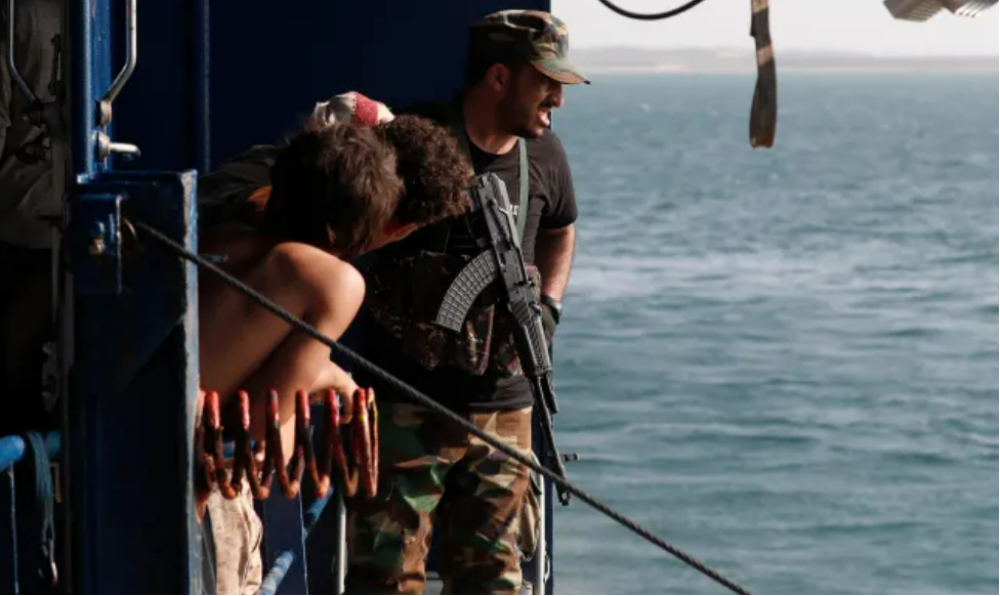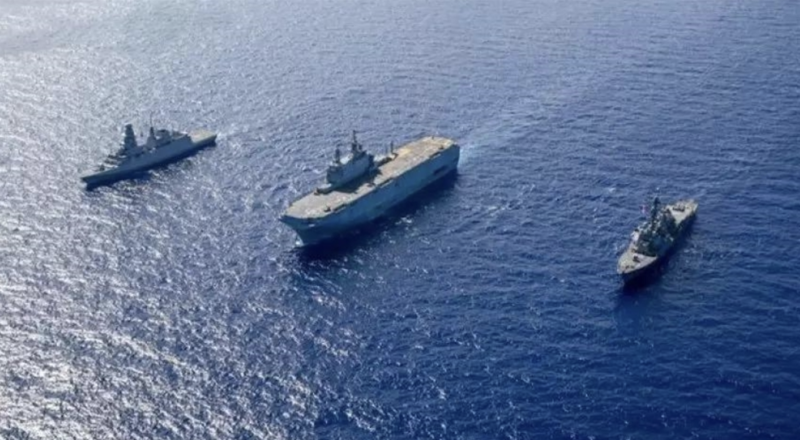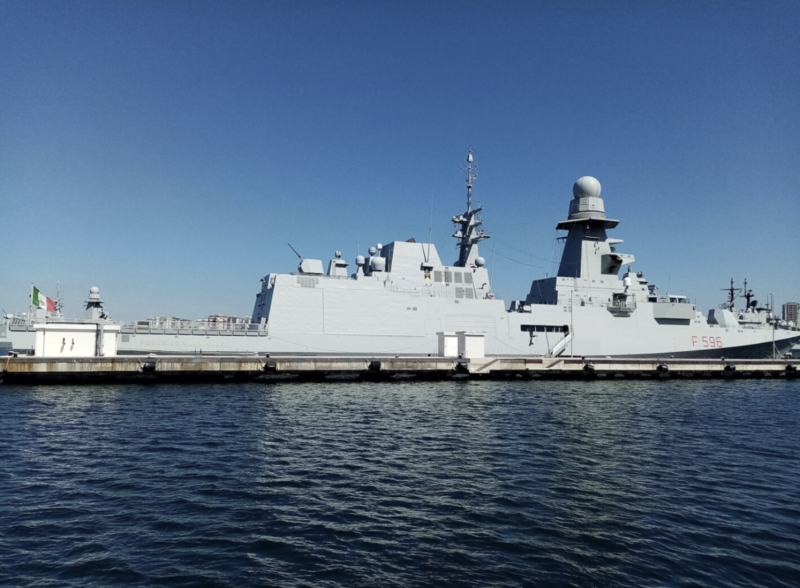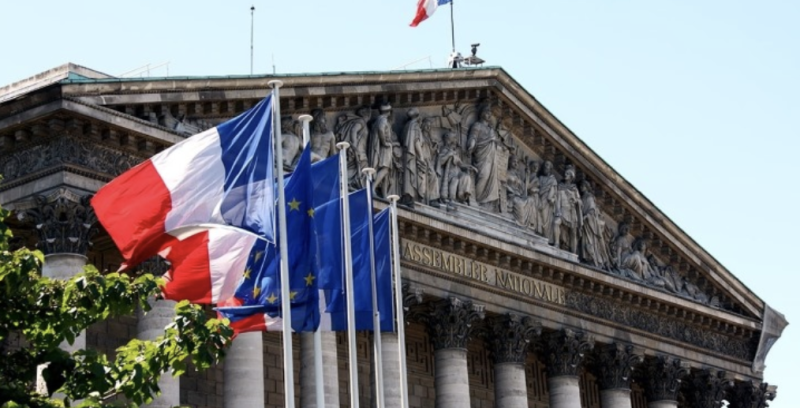How the Red Sea crisis is fuelling a fierce debate in America’s Yemeni quarter


At a Yemeni-owned coffee shop in Dearborn, the Michigan city where more than half the population is Arab American, the continuing attacks by Houthi rebels in the southern Red Sea are fuelling fierce debate.
Some of the regulars at the Jabal Coffee House say the attacks on commercial and military vessels are a legitimate response to Israel's war in Gaza, where local authorities say more than 24,600 people have been killed.
The Iran-backed Houthi rebels claim the ships they are attacking are carrying goods destined for Israeli ports.
“This is not about religion, or about who opposes or supports what the Houthis are doing in the Red Sea,” says Abdo Hakami, a retired Yemeni American who came to the US in 2002 after working in Saudi Arabia for decades.
“This is about standing up for the Palestinians. Whether you like or dislike the Houthis is not the question today, it’s about helping the people of Gaza.”
Since the Houthi attacks increased in November, several shipping giants have rerouted vessels around the tip of southern Africa to avoid the risk of being hit by the Iran-backed rebels.
This month, Chinese shipping firm Cosco reportedly suspended trips to Israeli ports, which have reported an 85 per cent drop in activity in recent weeks.
The Bab Al Mandeb strait, which runs along a region of the western Yemeni coast controlled by the Houthi rebels, has about 15 per cent of all global trade pass through its waters.
One of Mr Hakami’s coffee partners shared his views.
“When you see the landings on the ships or the drone strikes, we don’t see them in isolation,” said Ahmad Abu Ali, a former Yemeni diplomat who has been living in Dearborn for two years.
“We know that this is a consequence of what is happening to people in Gaza.”
But others vehemently disagree with the Houthi tactics.
Abdulrahman Batman, a lawyer and activist from the Dhale governorate of central Yemen who moved to Michigan in 2017, says the Houthis are likely to continue to make problems in the Red Sea.
“They are a terrorist group that can only use violence to achieve what they want," Mr Batman tells The National.
"They are happy to get [bombardments] from America and Britain because it makes them more popular with regular Yemeni people.
“Nor have the bombs affected the Houthis. They were told by Britain and the US when and where they were coming.”
He was reflecting a widely held view that the US and UK are informing the Houthis of imminent strikes.
A Yemeni shop owner blamed the Houthis for the country's food crisis and condemned their actions in the Red Sea.
“Some people are supporting what the Houthis are doing now in the Red Sea in support of Palestine but they are evil,” he said.
The fallout from the attacks on consumers and businesses around the world could be significant.
Ukraine, which had recently re-emerged as a key supplier of foodstuffs to many African and Asian countries, could see a major part of its export income harmed by events in the Red Sea.
That could result in a knock-on effect for agricultural and other food supply markets, from the US to China to Brazil, as global supplies fall.
Local economies are set to suffer, too. Egypt, which earns about $7 billion a year in transit fees from the Suez Canal and is in a major economic crisis, could be set to lose millions of dollars.
In recent years, thousands of Yemenis have fled the unrest that has destroyed much of their country’s infrastructure to set up new lives in Michigan, where the community is at the forefront of a booming new cafe culture.
Today, tables at cafes such as Jabal Coffee House are filled with young Arab Americans working and studying from their laptops, and older generations gathering to discuss events in the Middle East.
Some say a long-term solution to the wider Arab-Israeli conflict is the only way to prevent problems such as shipping woes from continuing to re-emerge in the months and years ahead.
“The wider threat to shipping will continue,” says Mr Abu Ali, “until there is a two-state solution in the Middle East.”
He said the Houthi attacks may be a form of geopolitical flexing by opponents of Israel and the West.
“Iran is gambling on winning the hearts and minds of people in the Arab world, that it is trying to help the Palestinians," Mr Abu Ali says.
"They want to show that they are stepping forward for the Palestinians in their dire need."
A popular uprising in 2011 and 2012 that unseated president Ali Abdullah Saleh was followed by a civil war and the emergence of the Iran-backed Houthi rebels in 2014.
Tehran has supported the rebels, who have fired hundreds of rockets on Saudi Arabia for almost a decade.
“Iran is trying to cultivate spheres of influence in the region. Its ties with the Houthis and what they are doing in the Red Sea is a part of that,” Mr Abu Ali said.

Mokha — Yemen is entering a highly sensitive stage as political and military developments accelerate, raising mounting warnings over the resu…

Red Sea — The European naval mission tasked with safeguarding international shipping lanes announced that an Italian frigate operating under…

Paris – The French Ministry of Foreign Affairs issued a statement expressing deep concern over the situation in Yemen, while reaffirming its…